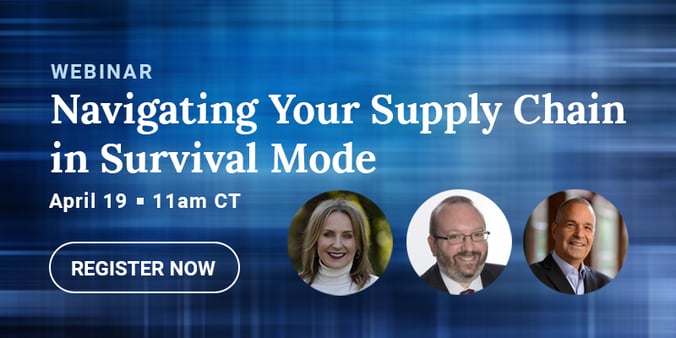Walmart Increases Driver Pay and Shanghai Extends a Lockdown
Apr 13, 2022
When you see Walmart willing to pay drivers six figure starting salaries or China shutting down the port in Shanghai, you have to ask: What does all this mean for shippers?
Walmart announced increases in driver pay on April 7 to make their fleet more competitive: “Walmart drivers can now make up to $110,000 in their first year with the company. And that’s just a start – drivers who have been with Walmart longer can earn even more, based on factors like tenure and location.”
Suffice it to say, this is a lot more than the average truck driver makes throughout the United States. So it's only logical to ask: Why would Walmart make this move?
Having worked with Walmart in the past, we know that they have plenty of talented people in their transportation and supply chain areas. And we also know that since Walmart’s executives understand the “We can’t sell what we don’t have” principle, they pay a lot of attention to the out of stock conditions in their stores.
Add it all up and it is obvious: Walmart is protecting their supply chain! They know their success depends on having a predictable supply chain with reliable carrier capacity to make sure they can get inventory from their distribution centers to their stories when it’s needed. So if the cost of paying their drivers more is less than the cost of losing sales because of empty shelves, Walmart’s move makes good business sense.
With that thought in mind, I have a question for you: What are you doing or willing to do to protect your company’s supply chain? The reason this is important is because today, more than ever, there are things occurring which could damage your company’s supply chains.
For example, with China’s recent decision to lockdown the port at Shanghai, thousands of containers are piling up. The timeline for when they’ll be able to dig out is uncertain because these lockdowns were recently extended indefinitely.
Whether it’s the disruptions at the Chinese ports, or the potential shutdown of our West Coast ports in July, it’s important to remove as much uncertainty as possible from your supply chains by changing your internal practices and processes. While Walmart can’t change what happens in China or other countries, they can take actions to prevent problems overseas from being exacerbated at their own docks.
If you’re wondering where to begin when it comes to evaluating or updating these practices and processes, I encourage you to consider trying our Rapid Assessment process. We can help you understand how to strengthen your supply chain through activities such as mapping and stress testing your supply chain.
We can also provide you with a valuable webinar on April 19, 2022 at 11am CT. In our “Navigating Your Supply Chain in Survival Mode" webinar, you’ll hear from some great resources that will give you insights about the things you need to protect your supply chains.
The panel includes:
- Shelley Simpson, Chief Commercial Officer & EVP of People and HR at J.B. Hunt
- Jon Gold, VP, Supply Chain and Customs Policy at the National Retail Federation
- Geoffrey Muessig, EVP & CMO at Pitt Ohio
If you're interested in learning more information about what's going on in China and the labor situation at the West Coast ports, you'll want to tune in to hear what's Jonathan Gold has to share.
We'll have lots of advice, and the opportunity to ask questions, so we hope you'll register for the webinar if you haven't already.
BY MIKE REGAN, CO-FOUNDER OF TRANZACT
CONNECT ON LINKEDIN

